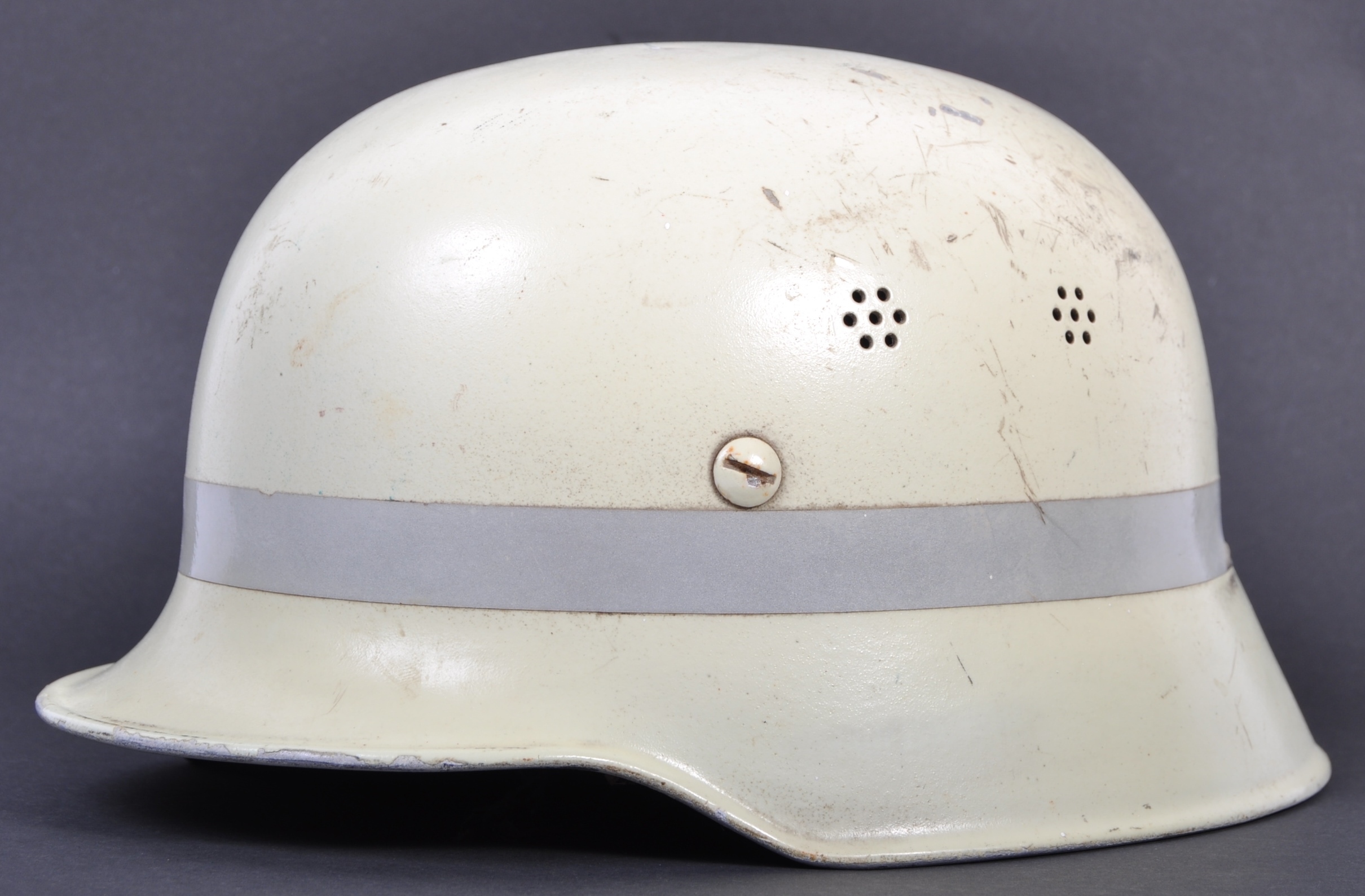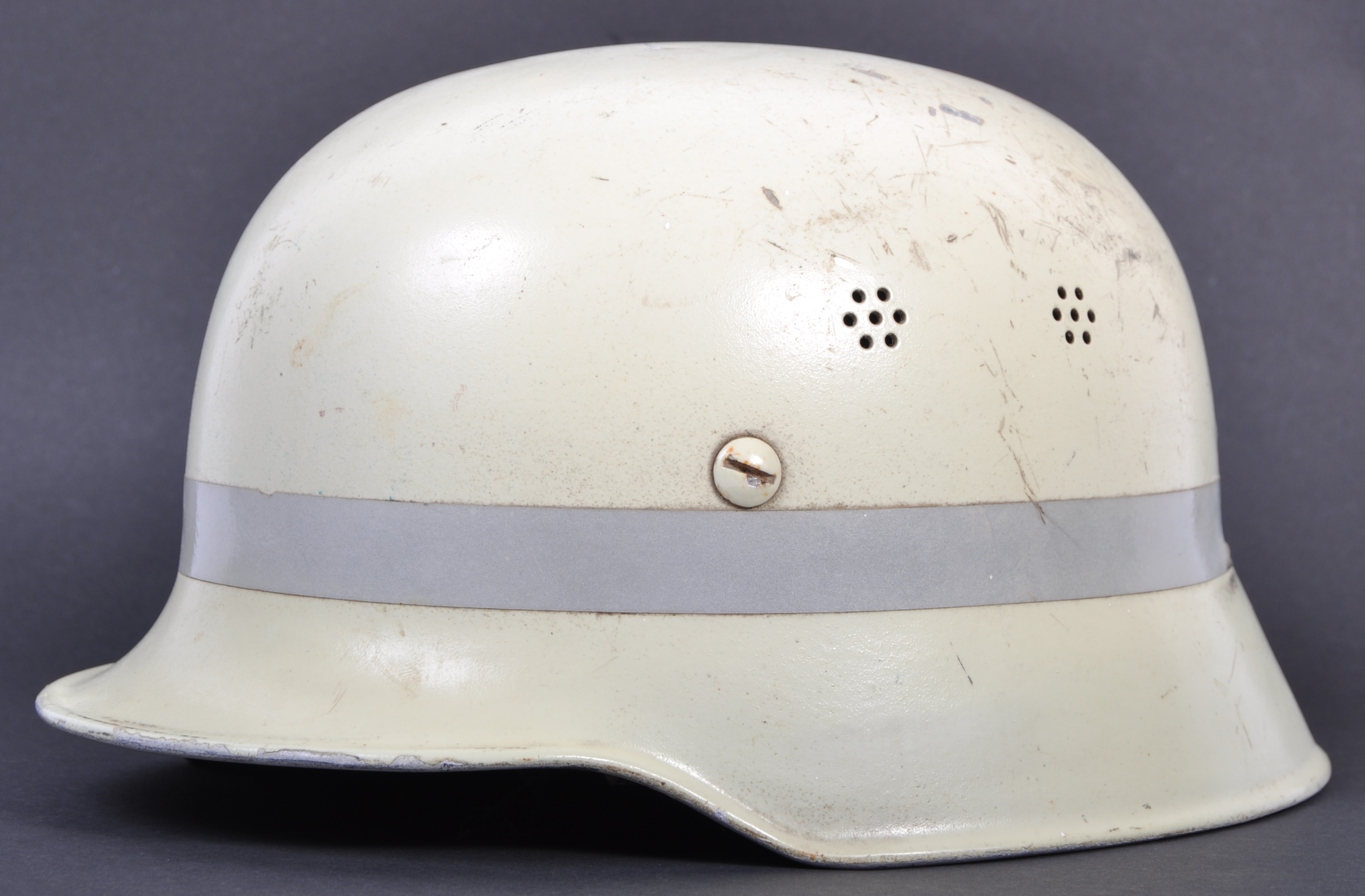A rare post-war M.B.E., Second World War clandestine operations M.C. group of ten to Colonel W. V. G. Smith Royal Fusiliers, late Lancashire Fusiliers, who was decorated for his services in S.O.E.’s Albanian Mission 1943-44, in which capacity he carried out numerous acts of sabotage The Most Excellent Order of the British Empire, M.B.E. (Military) Member’s 2nd type breast badge; Military Cross, G.VI.R., reverse officially dated ‘1945’; 1939-45 Star; Africa Star, clasp, 1st Army; Italy Star; Defence and War Medals, M.I.D. oak leaf; General Service 1918-62, 1 clasp, Cyprus (Major, M.C., L.F.); Thailand, Order of the Crown, Commander’s neck badge, silver, gilt and enamels; Thailand, Order of the Crown, breast badge, silver, gilt and enamels, together with a Lancashire Fusiliers cap badge, generally good very fine (10) £4000-5000 Footnote M.B.E. London Gazette 13 June 1964. M.C. London Gazette 15 March 1945. The original recommendation states: ‘Major W. V. G. Smith has operated as a British Liaison Officer in Albania from 15 October 1943 to December 1944. He is due to return to that country. During his period in the Field he has acted as Second-in-Command of an Area Mission and latterly, since February 1944, as Commander of the Mission itself. During his period in the Field, his loyalty, courage and devotion to duty have been of the highest order under the most trying conditions. Particularly valuable have been his strong and tactful handling of the F.N.C. Military and Political leaders, upon which the success of the Allied Mission so much depend. He has also been engaged in numerous reconnaissance and demolition operations of a hazardous nature, of which the following are examples: In January 1944, he entered territory fully controlled and patrolled by the Germans, in order to try and extricate three American nurses hiding in Berat. At very considerable risk to himself, he spent some days in this area and only gave up the attempt when he was betrayed by the local population and found himself surrounded by the enemy. In February 1944, he successfully destroyed the road between Berat-Kelgyre, with a small partisan escort. He approached the road under the cover of darkness. Preparation of the road for demolition took some time with the means available and before this preparation was completed, he came under heavy machine-gun fire. Major Smith completed the task and the road was so succesfully destroyed that it was never repaired by the Germans, who were thereby denied one of their valuable lines of communication. In June of 1944, during the German push of that month, he played a leading part in the successful extrication, without loss, of 13 Allied personnel. During this period Allied personnel were in great danger of being surrounded and captured, and their escape and present safety are largely due to Major Smith’s courage, coolness and decision. Major Smith is strongly recommended for the immediate award of the Military Cross.’ William Victor Granville Smith was born in Hyde, Cheshire in April 1920 and was granted an emergency commission in the 2/5th Battalion, Lancashire Fusiliers in September 1941, following service in the ranks with the B.E.F. Further active service ensued with “Paiforce” and the 1st Army in North Africa in 1942, but in August of the following year he transferred to Special Operations Executive (S.O.E.), most likely via a contact in that force’s Cairo establishment. Having then completed his parachute course at Kabrit on 18 September 1943, he was prepared for his first mission to Albania, parachuting in to that country in mid-October. Thereafter, until his return to the U.K. for a debriefing in December 1944, he carried out numerous acts of sabotage, his thorough destruction of a section of the Berat-Kelgyre road in February 1944 being a case in point. But over and above the operational side of his agenda, Smith built up an excellent general knowledge of both North and South Albania, including a valuable under
A rare post-war M.B.E., Second World War clandestine operations M.C. group of ten to Colonel W. V. G. Smith Royal Fusiliers, late Lancashire Fusiliers, who was decorated for his services in S.O.E.’s Albanian Mission 1943-44, in which capacity he carried out numerous acts of sabotage The Most Excellent Order of the British Empire, M.B.E. (Military) Member’s 2nd type breast badge; Military Cross, G.VI.R., reverse officially dated ‘1945’; 1939-45 Star; Africa Star, clasp, 1st Army; Italy Star; Defence and War Medals, M.I.D. oak leaf; General Service 1918-62, 1 clasp, Cyprus (Major, M.C., L.F.); Thailand, Order of the Crown, Commander’s neck badge, silver, gilt and enamels; Thailand, Order of the Crown, breast badge, silver, gilt and enamels, together with a Lancashire Fusiliers cap badge, generally good very fine (10) £4000-5000 Footnote M.B.E. London Gazette 13 June 1964. M.C. London Gazette 15 March 1945. The original recommendation states: ‘Major W. V. G. Smith has operated as a British Liaison Officer in Albania from 15 October 1943 to December 1944. He is due to return to that country. During his period in the Field he has acted as Second-in-Command of an Area Mission and latterly, since February 1944, as Commander of the Mission itself. During his period in the Field, his loyalty, courage and devotion to duty have been of the highest order under the most trying conditions. Particularly valuable have been his strong and tactful handling of the F.N.C. Military and Political leaders, upon which the success of the Allied Mission so much depend. He has also been engaged in numerous reconnaissance and demolition operations of a hazardous nature, of which the following are examples: In January 1944, he entered territory fully controlled and patrolled by the Germans, in order to try and extricate three American nurses hiding in Berat. At very considerable risk to himself, he spent some days in this area and only gave up the attempt when he was betrayed by the local population and found himself surrounded by the enemy. In February 1944, he successfully destroyed the road between Berat-Kelgyre, with a small partisan escort. He approached the road under the cover of darkness. Preparation of the road for demolition took some time with the means available and before this preparation was completed, he came under heavy machine-gun fire. Major Smith completed the task and the road was so succesfully destroyed that it was never repaired by the Germans, who were thereby denied one of their valuable lines of communication. In June of 1944, during the German push of that month, he played a leading part in the successful extrication, without loss, of 13 Allied personnel. During this period Allied personnel were in great danger of being surrounded and captured, and their escape and present safety are largely due to Major Smith’s courage, coolness and decision. Major Smith is strongly recommended for the immediate award of the Military Cross.’ William Victor Granville Smith was born in Hyde, Cheshire in April 1920 and was granted an emergency commission in the 2/5th Battalion, Lancashire Fusiliers in September 1941, following service in the ranks with the B.E.F. Further active service ensued with “Paiforce” and the 1st Army in North Africa in 1942, but in August of the following year he transferred to Special Operations Executive (S.O.E.), most likely via a contact in that force’s Cairo establishment. Having then completed his parachute course at Kabrit on 18 September 1943, he was prepared for his first mission to Albania, parachuting in to that country in mid-October. Thereafter, until his return to the U.K. for a debriefing in December 1944, he carried out numerous acts of sabotage, his thorough destruction of a section of the Berat-Kelgyre road in February 1944 being a case in point. But over and above the operational side of his agenda, Smith built up an excellent general knowledge of both North and South Albania, including a valuable under















Testen Sie LotSearch und seine Premium-Features 7 Tage - ohne Kosten!
Lassen Sie sich automatisch über neue Objekte in kommenden Auktionen benachrichtigen.
Suchauftrag anlegen